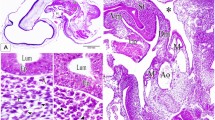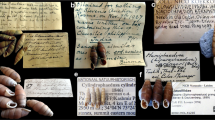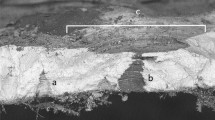Abstract
DR. CUNNINGHAM and Mr. REID1 were naturally concerned that Mr. Foxon2 should dismiss their theory while omitting half of the evidence on which it was based. The function of the pelvic limb filaments of the breeding male Lepidosiren as a source of oxygen for the developing embryos is, of course, probable only if the supply of oxygen from the water in the nest is actually insufficient. That this was the case appeared probable from the work of Carter and Beadle3 on the Chaco swamps, where the Winkler method for oxygen estimation was employed. Mr. Foxon1 replies that my work on swamps in East Africa4 has thrown some doubt on this point, and that the figures for oxygen in the waters investigated may be subject to an error of anything up to 1.0 c.c. per litre.
This is a preview of subscription content, access via your institution
Access options
Subscribe to this journal
Receive 51 print issues and online access
$199.00 per year
only $3.90 per issue
Buy this article
- Purchase on Springer Link
- Instant access to full article PDF
Prices may be subject to local taxes which are calculated during checkout
Similar content being viewed by others
References
NATURE, 131, 913, June 24, 1933.
NATURE, 131, 732, May 20, 1933.
J. Linn. Soc., Zool., 37, 251, 205; 1930.
J. Linn. Soc., Zool., 37, 258, 135; 1932.
Author information
Authors and Affiliations
Rights and permissions
About this article
Cite this article
BEADLE, L. Pelvic Filanients of Lepidosiren. Nature 132, 243–244 (1933). https://doi.org/10.1038/132243c0
Issue Date:
DOI: https://doi.org/10.1038/132243c0
Comments
By submitting a comment you agree to abide by our Terms and Community Guidelines. If you find something abusive or that does not comply with our terms or guidelines please flag it as inappropriate.



